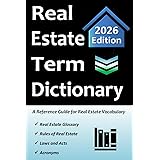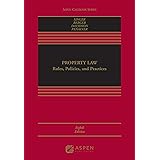Building generational wealth through strategic real estate investing remains one of the most powerful financial strategies available. However, many aspiring investors often feel overwhelmed, unsure of where to begin their journey into owning an investment property. The complexities of financing, property selection, and market navigation can seem daunting at first glance.
Fortunately, the path to buying your first rental property can be broken down into manageable steps. The video above provides an excellent step-by-step guide to help you navigate this process effectively. This supplementary guide will further elaborate on each crucial stage, offering additional insights and practical advice to ensure you are well-prepared to make informed decisions as a new real estate investor.
Understanding the Foundation: Preparing for Your First Investment Property
Embarking on your real estate investment journey requires a solid financial foundation. Preparing for key financial aspects early on will significantly streamline your buying process and increase your chances of securing favorable terms for your investment property.
Securing Your Down Payment for a Rental Property
One of the initial hurdles for many individuals is accumulating sufficient funds for a down payment. For a traditional rental property, lenders typically require a down payment of 15% to 20% of the property’s purchase price. This means a $200,000 property could necessitate a $30,000 to $40,000 down payment, underscoring the significant financial commitment involved.
Alternatively, the FHA loan offers a pathway for those with limited capital, requiring only 3.5% down. This option, however, comes with a specific condition: you must occupy one unit of a multi-family property for at least one year. While this strategy can be ideal for new investors, it is important to note that FHA loans also typically include mortgage insurance premiums, which can increase your overall monthly housing expenses.
The Critical Role of Credit in Real Estate Investing
Your credit score is a fundamental determinant in obtaining a mortgage loan for an investment property. A higher credit score signals lower risk to lenders, consequently enabling you to secure a lower interest rate on your mortgage. This reduction in interest can translate into substantially lower monthly payments, thereby enhancing your cash flow and accelerating wealth accumulation.
Ideally, aiming for a credit score above 700, and even above 730, is advisable before initiating a mortgage application. To improve your credit, diligently pay your bills on time, reduce your credit utilization (the amount of credit you use compared to your total available credit), and promptly dispute any inaccuracies on your credit report. These steps are crucial for any aspiring real estate investor.
Navigating the Market: Lenders, Property Types, and Research
Once your financial house is in order, the next phase involves understanding the market and identifying suitable investment opportunities. This stage is about asking the right questions and conducting thorough research.
Engaging with Lenders: Pre-Qualification, Not Pre-Approval
Before committing to a specific property, it is prudent to engage with lenders to gauge your financial standing. At this preliminary stage, the goal is to get a ‘pre-qualification,’ which provides an estimate of what loan amount you might qualify for based on your income and credit score, without a hard inquiry on your credit report. This informal assessment helps you understand your budget range without impacting your credit score initially.
During these conversations, lenders will ask about your income, employment history, and self-employment status if applicable. Providing accurate information will allow them to offer projected quotes for mortgage amounts, which is invaluable for defining your property search parameters. Consequently, this step helps manage expectations and focus your efforts as you pursue your first rental property.
Selecting the Right Investment Property Type
The market offers a diverse array of rental property types, each with its own advantages and considerations. Common options include single-family homes, duplexes, triplexes, and fourplexes (multi-family properties). Your budget and investment goals will largely dictate which type is most appropriate for your initial venture.
For new investors, multi-family properties can offer immediate benefits by allowing you to live in one unit while renting out others, which can help offset mortgage costs. Conversely, it is generally recommended to avoid condominiums when starting out. Condos often come with substantial Homeowner Association (HOA) fees, which can significantly diminish your potential profits. Furthermore, strict HOA rules might limit your ability to make renovations that could enhance rental income or property value, making them less flexible for a beginner real estate investor.
Conducting Diligent Property Research
Thorough research is paramount when identifying potential investment properties. A primary objective should be to find properties that are “cash flow positive.” This means the rental income generated from the property consistently exceeds its total monthly expenses, including mortgage, taxes, insurance, and maintenance. For instance, if a property generates $3,000 in rental income and incurs $2,500 in expenses, it yields a positive cash flow of $500 per month, directly contributing to your generational wealth. Studies indicate that properties with consistent positive cash flow generally provide more stable returns for beginner investors.
Utilize online platforms such as Zillow, Redfin, and Trulia to assess potential rental income and estimate expenses using online mortgage calculators. Additionally, prioritize properties that require minimal major renovations upon purchase. While cosmetic updates like new paint or carpet are manageable, extensive repairs such as roof replacements, HVAC system overhauls, or significant plumbing work can incur costs ranging from $5,000 to over $15,000, presenting unforeseen financial burdens for a new real estate investor. Furthermore, always favor properties in safe neighborhoods with attractive features like good schools, parks, and a robust job market, as these factors typically draw in quality tenants.
Finalizing Your Investment: Approval, Offer, and Closing
With thorough preparation and research completed, the final stages involve securing formal approval, making a strategic offer, and navigating the closing process to officially acquire your rental property.
Obtaining Full Lender Pre-Approval
Once you have identified potential properties and have a clear understanding of your budget, it is time to secure full pre-approval from a lender. This step involves a “hard inquiry” on your credit, which will temporarily lower your score by a few points. However, a pre-approval letter is critical as it demonstrates to sellers that you are a serious and qualified buyer.
During this comprehensive process, lenders will meticulously evaluate various factors including your debt-to-income ratio, employment history, assets, cash reserves, and the potential rental income of the property you intend to purchase. The specific terms of your mortgage loan will be determined by these assessments, so ensuring all your documentation is in order is essential for a smooth pre-approval for your investment property.
Making a Strategic Offer and the Power of Inspections
Upon receiving pre-approval, you can confidently begin making offers on properties that align with your budget and investment objectives. Partnering with an experienced real estate agent is highly recommended at this stage. A knowledgeable agent will guide you through the negotiation process, often possessing insights into local market trends and off-market deals that can be beneficial.
Crucially, ensure that any offer you make is contingent upon a satisfactory property inspection. Inspections frequently uncover hidden issues that require attention, as approximately 60-70% of home inspections reveal at least minor repair needs. For instance, a first-time investor might find a roof needing repair, as the speaker experienced. Obtaining estimates for these repairs allows you to negotiate with the seller for a price reduction or to have the issues resolved prior to closing. If significant issues are found and the seller is unwilling to negotiate, retaining the inspection contingency allows you to withdraw your offer without penalty.
The Escrow Process: Bringing Your Rental Property Home
The closing of escrow marks the final, intricate step in buying your first rental property. This process involves the official transfer of ownership from the seller to you, overseen by an impartial third party. You will be required to sign numerous legal documents, including the property deed and various transfer paperwork, and finalize the payment of all closing costs.
Closing costs typically encompass lender fees, attorney fees, title insurance, and escrow fees, which can collectively amount to 2-5% of the purchase price. Having all necessary funds readily available is paramount for a seamless closing. Once these formalities are completed, the property officially becomes yours, granting you the freedom to begin any planned renovations and, most importantly, to start renting it out and capitalizing on the inherent tax benefits of your rental property.









